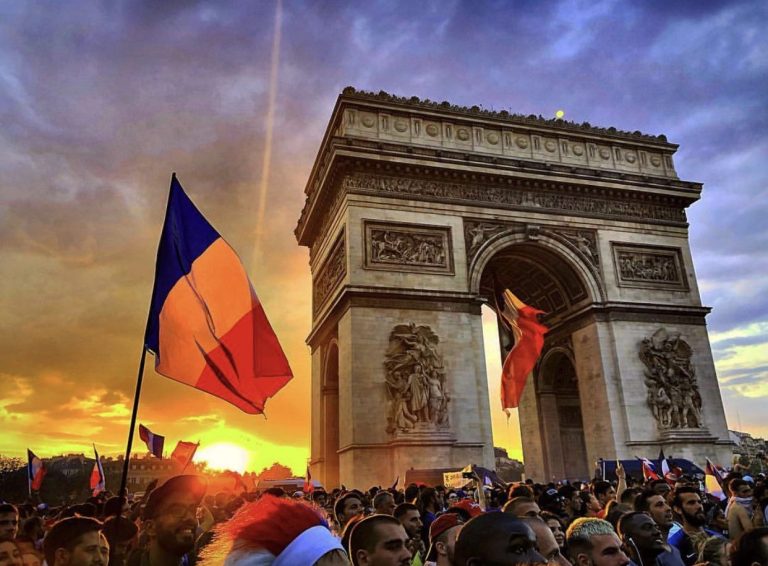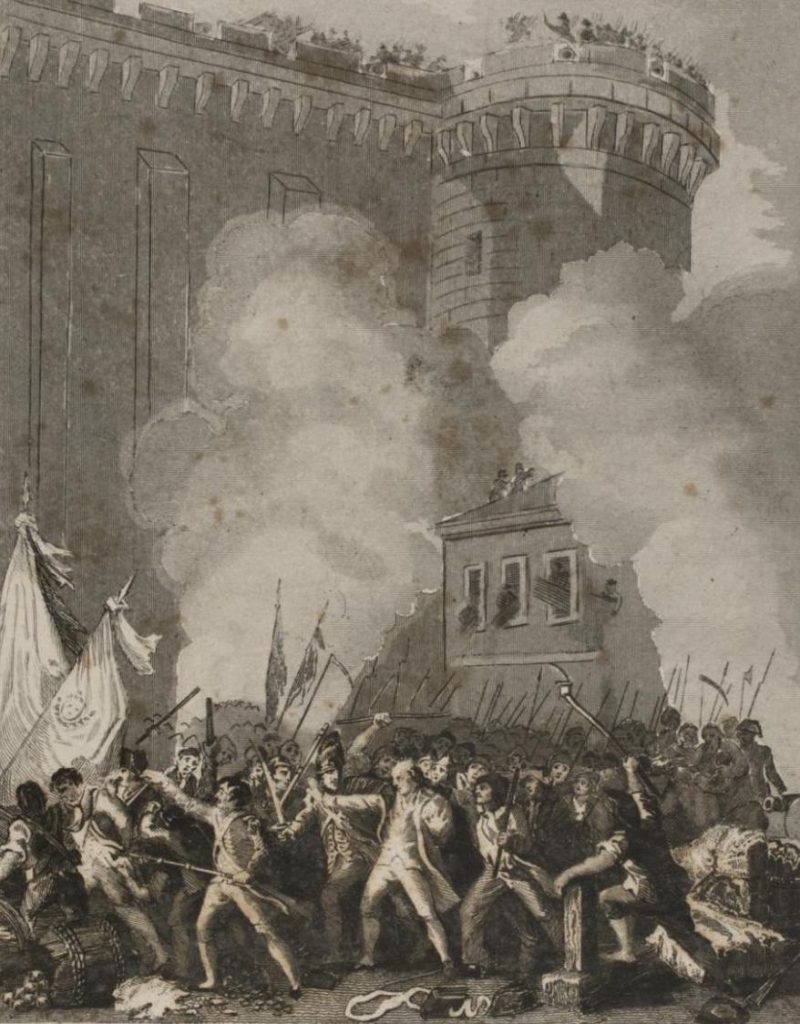
Paris, France. Every year in France, we celebrate National Day on 14th July. In English-speaking countries, it is often called “Bastille Day.” However, in France, it is referred to as La Fête Nationale or Le Quatorze Juillet.
What is the significance of the fourteenth of July? What actually happened at the Bastille?
The Bastille had stood in Paris since medieval times, first used as a fort and then a prison. By 1789, it had come to symbolize royal power and was attacked by thousands of angry Parisians on July 14, 1789.
In the summer of 1789, unrest had been growing in Paris.
Earlier that year, the Estates General had met at Versailles. Delegates representing the ordinary people – the Third Estate – were at last able to air their grievances and express their dissatisfaction with France’s absolutist monarchy. They were no longer content with power being held exclusively by the nobility and the clergy and demanded an equal share. To reinforce their claims, they formed themselves into a self-declared National Assembly.
Initially, King Louis XVI appeared to accept the challenge to his absolute power, but in fact, he resisted plans for a constitutional monarchy, in which more power would be given to the people. Royal troops were stationed around Paris. Against a backdrop of rising food prices and widespread hunger, the citizens responded by electing their own representatives and setting up their own militias.

It was one such group of citizens, in search of arms and ammunition, which descended upon the Bastille Prison on that fateful July day. Although the prison had held political prisoners in the past, only a handful of inmates were imprisoned there on 14 July 1789. One of the Bastille’s more famous inmates, the Marquis de Sade, had been moved to another prison just days earlier.
A large crowd, some of them already armed, surrounded the building and demanded entry and access to weapons. The governor of the prison negotiated with the mob for several hours before they finally were able to enter. They seized weapons, killed the guards, including the governor who had his throat cut, and freed the prisoners.
When the news of the taking of the Bastille was relayed to King Louis XVI at Versailles, he is famously reported to have said, “Is it a revolt?” to which his courtier replied, “No sire, it is a revolution.”
On July 14, 1790, the first anniversary of the fall of the Bastille was celebrated in a spirit of optimism and unity. Little did the French realize that years of revolutionary terror and turmoil lay ahead. In 1790, La Fête de la Fédération celebrated what was expected to be the new political structure in France – a constitutional monarchy. Fourteen thousand “fédérés” or representatives from the provinces, as well as soldiers, came to Paris, and even Louis XVI and Marie Antoinette took part in the celebrations.
During the nineteenth century, society and government swung back and forth between monarchists and republicans, and there was no fixed national holiday. The date varied according to which regime was in power. In 1804, Emperor Napoleon Bonaparte declared his birthday, 15th August, as the French National Day (it was also conveniently a religious feast day). During the Restoration period of 1814 – 1830, a constitutional monarchy was in place, and the name day of each of the kings was decreed as the national day.
In the decade following the tumultuous events of 1870 and 1871, the Third Republic was created, and the newly elected government hoped to heal a divided French society. Inspired by the spirit of national unity of the earlier Fête de la Fédération, the government revived the date, and the fourteenth of July was finally adopted as the French National Day in 1880.
How is it celebrated in small towns, and across France and the world?
La Fête Nationale conveniently falls at the time when a majority of French people are enjoying their summer holidays. In France, and in French territories around the globe, the day is marked by fireworks, street parties, parades, and concerts. Another popular modern tradition is the bal des pompiers. Each year, the local fire stations open their doors and transform their casernes into a venue for community parties.
For the last two years, fireworks displays and other public events were canceled. This year, in small towns and big cities, French people are excited to be able to finally celebrate their national day in style.
#BastilleDay #LaFêteNationale #QuatorzeJuillet #FrenchNationalDay #RevolutionAndUnity
TAGS: National Day, Bastille Day, French Revolution, La Fête Nationale, Le Quatorze Juillet, Paris, 14th July, History, Celebrations, French Culture, Fireworks, Parades